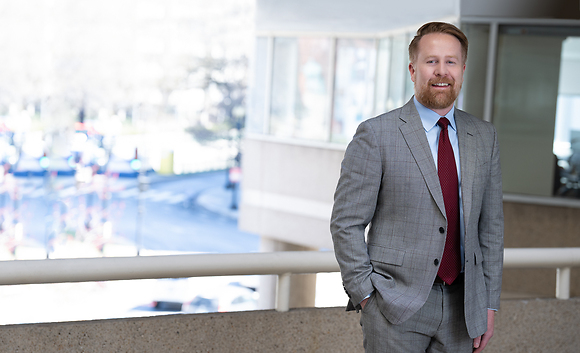Hiring Former Federal Government Employees as Lobbyists
Click here for the full PDF version of the Political Activity Law Bulletin.
Public interest and reform groups have long called for closing the "revolving door" between government service and private employment. Although post-employment restrictions date back to 1962, groups consistently argued that the rules too easily allowed former Federal Government employees to lobby professionally for private industries they previously regulated. Congress responded to reformers' calls by passing the Honest Leadership and Open Government Act ("HLOGA") in 2007 to address revolving door issues. HLOGA extends the time period for most post-employment restrictions and broadens the restrictions' scope. President Obama one-upped Congressional efforts when, shortly after coming into office, he imposed even tighter post-employment restrictions for Executive Branch appointees.
In the current post-HLOGA/Obama era, organizations and companies seeking to hire former government employees should understand the post-employment restrictions so that they can modify their hiring practices accordingly. Post-employment restrictions limit a former employee's ability to represent others before Government officials and employees; however, the restrictions do not generally prevent a former public employee from participating in behind-the-scenes lobbying strategy.
Post-employment lobbying restrictions differ based on an individual's former Federal Government position.
- Former Members and Officers of the House of Representatives are: (1) prohibited for one year from representing a foreign government or political party before the Government or advising such a foreign entity about lobbying activity; and (2) prohibited for one year from lobbying Congress.
- Former House Senior Staff are: (1) prohibited for one year from representing a foreign government or political party before the Government or advising such a foreign entity about lobbying activity; and (2) prohibited for one year from lobbying their former House office or committee.
- Former Senators are: (1) prohibited for one year from representing a foreign government or political party before the Government or advising such a foreign entity about lobbying activity; and (2) prohibited for two years from lobbying Congress.
- Former Senate Officers and Senate Senior Staff are: (1) prohibited for one year from representing a foreign government or political party before the Government or advising such a foreign entity about lobbying activity; and (2) prohibited for one year from lobbying the Senate.
- Former Senate Personal or Committee Staff who register as federal lobbyists are prohibited for one year from lobbying their former Senate office or committee.
- All Former Executive Branch Employees are: (1) permanently prohibited from representing a private entity before the Government with the intent to influence, on particular matters involving specific parties that they handled "personally and substantially" during their Government employment; and (2) prohibited for two years from representing a private entity before the Government with the intent to influence, on particular matters involving specific parties that were pending under their official responsibility in their last year of Government service.
- Former Senior Executive Branch Employees are: (1) prohibited for one year from representing a foreign government or political party before the Government or advising such a foreign entity about lobbying activity; and (2) prohibited for one year from lobbying their former agency.
- Former Very Senior Executive Branch Employees are: (1) prohibited for one year from representing a foreign government or political party before the Government or advising such a foreign entity about lobbying activity; and (2) prohibited for two years from lobbying any Executive Level official in the Executive Branch or their former agency.
- Former Obama Administration Appointees are prohibited from lobbying any covered executive branch official (as defined in the Lobbying Disclosure Act) or any non-career Senior Executive Service appointee for the duration of the Obama Administration.
In addition to the restrictions summarized above, special limitations apply to post-employment activities by employees who participated in procurement matters or who engaged in trade or treaty negotiations while working for the Government.
Several exceptions apply to the federal post-employment restrictions. For example, self-representation, providing testimony under oath, representing the Federal Government, or acting as an elected state or local representative are exempt. Likewise, notwithstanding the restrictions, former public employees may engage in certain communications with agencies on behalf of a state or local government, a college or university, or political candidates and committees.
For more information about federal post-employment restrictions, please contact one of the attorneys in Caplin & Drysdale's Political Activity Law Group.

